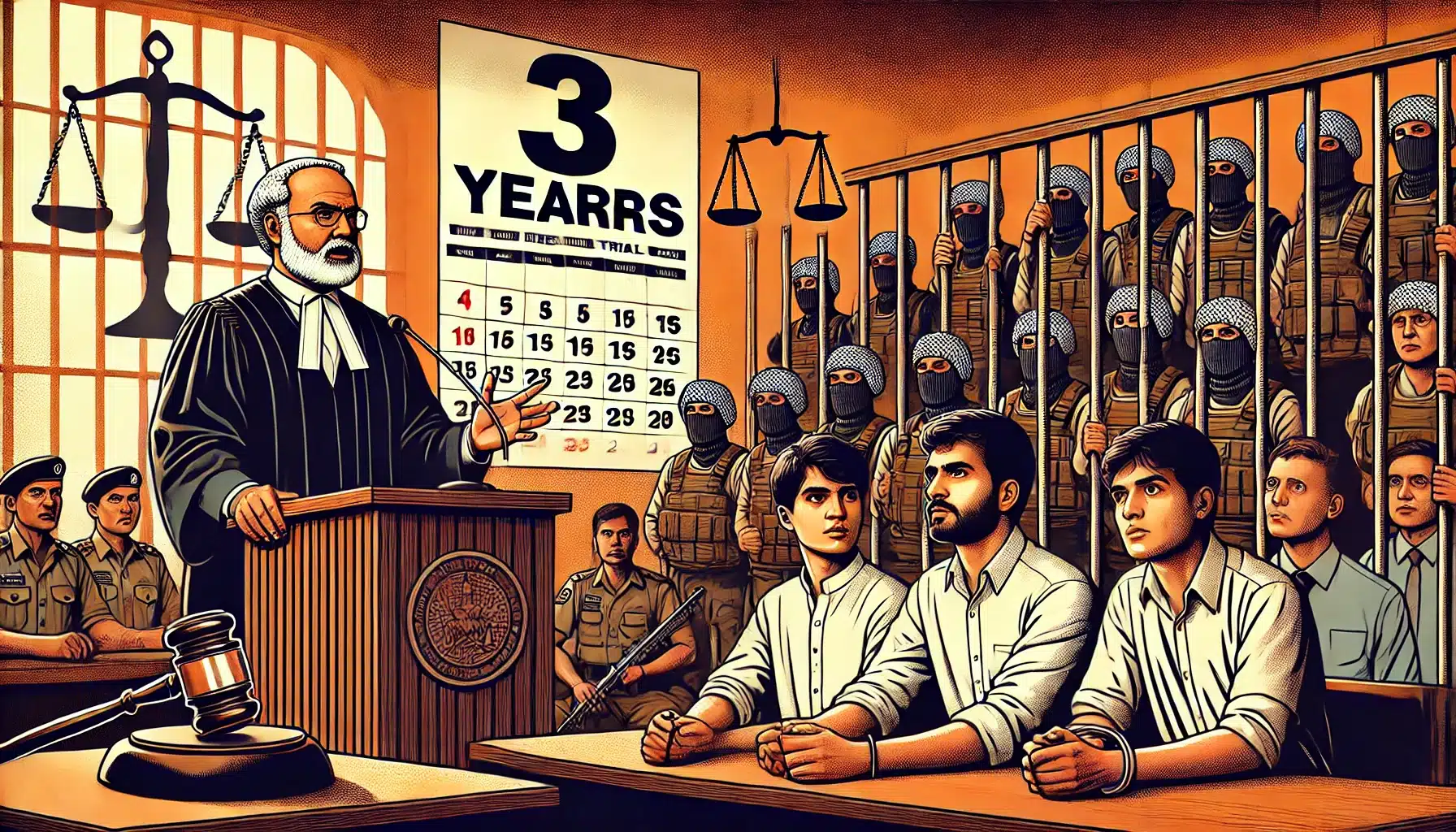The Delhi riots “larger conspiracy” case highlights the plight of students and activists languishing in pre-trial detention. The Supreme Court’s recent intervention underscores that serious charges cannot justify indefinite detention without trial, emphasizing the urgent need for swift justice to up

Best way to automate statutory/referential drafting
Imagine this: You are arrested for allegedly being part of a conspiracy, but have not even faced a trial yet. Three years later, you’re still waiting behind bars. This is the harsh reality for many accused in the Delhi riots “larger conspiracy” case (FIR 59/2020).
The Supreme Court has recently thrown a lifeline to those caught in the legal labyrinth, reminding us that justice delayed is justice denied. In a clear message to the prosecution, the court has asserted that simply slapping on serious charges is not enough to keep someone locked up indefinitely. If you can’t guarantee a speedy trial, you can’t deny bail.
Caught in a Procedural Maze
The case involves students and activists arrested under the Unlawful Activities Prevention Act (UAPA), a law with stringent bail provisions.
Adding to the frustration, the trial itself hasn’t even begun. The courts are still in the preliminary stages, which normally involve reviewing documents. This agonizingly slow pace raises a big question: when will these accused individuals finally get their day in court?
A Glimmer of Hope, Followed by Setbacks
There was a brief moment of optimism. Three activists, Asif Iqbal Tanha, Devangana Kalita and Natasha Narwal managed to secure bail in 2021 after the Delhi High Court found they were merely organizing protests, not engaging in terrorism.
The Supreme Court upheld this decision. However, for the remaining eight accused, the future remains uncertain. This administrative delay adds another layer of hardship to their situation, raising concerns about potential violations of their right to a speedy trial as enshrined under Article 21 of the Indian Constitution.
The Sharjeel Imam Case
Sharjeel Imam’s bail plea has been a particularly arduous journey. Initially listed before a bench headed by Justice Mridul, the case was subsequently transferred due to a roster change. Despite numerous hearings, the bench has yet to reserve judgment. This prolonged process highlights the challenges associated with roster changes and the potential impact they can have on the progress of a case.
The Experience of Other Accused
The cases of Meeran Haider, Mohd Saleem Khan, and Shifa ur Rehman followed a similar pattern of multiple listings and bench changes. However, a significant development occurred when the special bench reserved judgment in their cases. This marked a crucial step forward in the legal process.
On the other hand, Shadab Ahmed and Athar Khan, whose bail pleas were filed later, have experienced fewer hearings and have not reached the stage of judgment reservation. This disparity in the pace of proceedings underscores the potential impact of the timing of filing a bail plea on the overall duration of the legal process.
The Khalid Saifi and Gulfisha Fatima Cases
The cases of Khalid Saifi and Gulfisha Fatima, while sharing similarities with others, also had unique aspects. Both cases were initially listed before the special bench and eventually led to judgment reservations. However, in Saifi’s case, an additional round of arguments was required, resulting in a second judgment reservation.
Umar Khalid: A prominent figure in the anti-CAA protest
One of the accused, Umar Khalid, who was arrested in September 2020, was denied bail in October 2022 by the Delhi High Court. However, in a surprising move this 14 February 2024, Khalid withdrew his bail plea from the Supreme Court citing “changed circumstances.”
Without elaborating on the “change in circumstances”, Khalid’s father cited the long adjournments in the bail plea, at the time, he had completed 1248 days in incarceration. His second attempt was also dismissed by the trial court on May 28, 2024. This latest development leaves Khalid’s path to bail more challenging.
Beyond the specific legal challenges faced by Khalid, his case has emerged as a symbol of the broader issues plaguing India’s criminal justice system, including prolonged pre-trial detention and the potential misuse of anti-terror laws. As his legal battle continues, it remains a focal point for discussions on the delicate balance between national security and individual liberties, has been at the center of a prolonged legal battle since his arrest in connection with the Delhi riots of 2020.
The situation is particularly concerning because many of these individuals have not been charged with any other offences. While some FIRs against them are ongoing, FIR 59/2020 remains in a State of limbo, with the trial yet to commence.
The Broader Implications
The experiences of these individuals highlight the complex interplay of factors that can influence the duration and outcome of bail hearings. Roster changes, the workload of the courts, the nature of the charges, and the prosecution’s stance all play a role in shaping the legal journey of the accused.
These delays have far-reaching consequences. Prolonged pre-trial detention can cause significant emotional and psychological distress for the accused and their families. It can also erode public confidence in the justice system if the perception is that it is slow and inefficient.
Will the wheels of justice ever start rolling faster?





